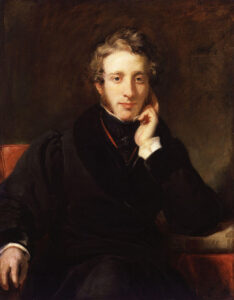Edward George Bulwer-Lytton was a 19th-century English novelist, playwright, and politician best known for coining phrases that have become embedded in the English language. Though his literary fame has faded over time, his words remain alive through memorable quotes and expressions. You may not recognize his name, but you’ve undoubtedly heard his most famous opening line: “It was a dark and stormy night…”—often mocked, yet iconic. Bulwer-Lytton had a flair for drama and rhetoric, usually blending romanticism with philosophical insight.
He believed in the power of words to move people, shape ideas, and inspire change. His quotes cover a wide range of themes, including politics, ambition, character, and the human condition. As a member of Parliament and a prolific writer, he bridged the gap between public life and artistic expression. Despite shifts in literary taste, his insights remain relevant for their sharp wit and moral undertones. His influence even extends into modern pop culture, literature, and political thought. Let’s explore some of Bulwer-Lytton’s most striking quotes and uncover the wisdom behind his bold, expressive style.
Birth and Early Life
Edward George Bulwer-Lytton was born on May 25, 1803, in London, England, into an aristocratic family. His father, General William Earle Bulwer, died when Edward was just four years old, and he was primarily raised by his mother, Elizabeth Barbara Lytton, who had a strong literary interest. His upbringing was shaped by refined tastes and a deep appreciation for the arts and literature, encouraged by his mother’s love for reading and culture.

He was a sensitive, introspective child, often seen as precocious and highly imaginative. His early immersion in classical literature and philosophy planted the seeds for what would become a lifelong dedication to literary and intellectual pursuits.
Education
Bulwer-Lytton was educated at Dr. Hooker’s school in Rottingdean and then at various boarding schools before attending Trinity College, Cambridge, in 1822. While at Cambridge, he won the prestigious Chancellor’s Gold Medal for English verse. His time at the university was pivotal—both in refining his literary voice and shaping his political and philosophical outlooks.
He graduated with a B.A. in 1826 and published his first novel, Falkland, in the same year. This marked the start of a long and varied literary career.
Habits and Personality
Bulwer-Lytton was known for his eccentricity and elegance. He was meticulous about his appearance and lifestyle. He maintained a regimented writing schedule, often working late into the night.
He was deeply interested in the occult, mysticism, and spiritualism, which permeated much of his fiction. This reflected not only a literary trend of the time but also a genuine personal curiosity. Despite being a public figure, he was also reclusive and introspective, often retreating into his country estate to write and reflect.
Profession and Literary Career
Edward Bulwer-Lytton was a novelist, playwright, poet, and politician. He wrote prolifically across genres—historical fiction, romance, the occult, and science fiction.
Some of his most notable works include:

-
“Pelham” (1828) – a fashionable novel that made him an overnight success.
-
“The Last Days of Pompeii” (1834) – one of his most enduring historical novels.
-
“Zanoni” (1842) – a mystical, philosophical work with elements of the supernatural.
-
“The Coming Race” (1871) – an early science fiction novel that introduced the concept of “Vril,” inspiring many later writers.
Success and Impact
Bulwer-Lytton achieved immense fame and fortune during his lifetime. At his peak, he was as popular as Charles Dickens and Walter Scott. His writing style, often ornate and melodramatic, appealed to Victorian readers’ tastes.
He coined several famous phrases still in use today:
-
“The pen is mightier than the sword.”
-
“It was a dark and stormy night…” (from his novel Paul Clifford, often parodied but still iconic)
-
“Pursuit of the almighty dollar.”
Favorite Things and Interests
-
Books and Philosophy: He had a vast personal library and a deep admiration for classical Greek and Roman thought.
-
Gardening and Nature: He enjoyed the English countryside and often incorporated natural imagery in his writing.
-
The Occult: Bulwer-Lytton was fascinated with secret societies, ancient wisdom, and the metaphysical. His novels Zanoni and A Strange Story contain esoteric themes.
-
Theatre and Fashion: He had a flair for drama and was fond of elaborate, aristocratic dressing.
Love and Relationships
Bulwer-Lytton’s love life was turbulent. He married Rosina Doyle Wheeler in 1827, a woman known for her strong opinions and feminist leanings. Their marriage was passionate but unhappy, eventually resulting in separation in 1836.

The separation was highly publicized and scandalous, with Rosina accusing him of cruelty and manipulation. She even published a satirical novel attacking his character. In retaliation, Bulwer-Lytton used his political influence to have her temporarily committed to an asylum.
Despite their broken relationship, they had two children—one of whom, Edward Robert Bulwer-Lytton, became a respected poet and diplomat.
Death and Legacy
Bulwer-Lytton died on January 18, 1873, at the age of 69. He had suffered a long illness and passed away at his estate in Torquay, Devon.
Though his literary style later fell out of fashion, and he was once considered overly dramatic, modern scholars have begun to reevaluate his influence. Today, his legacy survives not just in literature but also in the phrases and ideas he contributed to English-speaking culture.
He is buried in Westminster Abbey, a testament to the respect he commanded in his time.
Final Thoughts
Edward G. Bulwer-Lytton lived a life filled with contrasts: light and darkness, intellect and emotion, fame and criticism, love and conflict. He was a product of his age and yet ahead of it in many ways, especially in his exploration of science fiction and spiritual themes.
His most enduring belief might be captured in this line:
“The pen is mightier than the sword.”
A phrase that encapsulates not only his literary ethos but the profound effect words can have on history, society, and the soul.
Frequently Asked Questions
What is Edward G. Bulwer-Lytton’s most famous quote?
“The pen is mightier than the sword.” This powerful line emphasizes the impact of ideas and communication over violence.
Did he really write, “It was a dark and stormy night”?
Yes. That famous line begins his novel Paul Clifford and is often cited as an example of purple prose.
What did Bulwer-Lytton believe about power and language?
He believed strongly in the influence of language, as seen in his quote: “The true spirit of conversation consists in building on another man’s observation, not overturning it.”
Did he write about destiny or fate?
Yes. He once wrote: “Talent does what it can; genius does what it must.”
What was his view on character?
He valued moral integrity, saying: “The easiest person to deceive is one’s self.”
Was he involved in politics?
Yes, Bulwer-Lytton served in the British Parliament and brought political themes into his writing.
Was he respected in his time?
Yes. He was pretty popular during the Victorian era and was knighted for his contributions.
Why is his writing sometimes criticized today?
His style, filled with flourishes and melodrama, is seen by some as overly elaborate.
Did he inspire any movements or awards?
Yes! The Bulwer-Lytton Fiction Contest humorously celebrates deliberately harmful opening sentences.
What’s a lesser-known but wise quote by him?
“A good heart is better than all the heads in the world.” — a beautiful reminder of compassion over cleverness.
Conclusion
Edward G. Bulwer-Lytton’s quotes stand as a testament to the lasting power of language and imagination. Though his literary style may not suit all tastes today, his insights remain sharp, memorable, and often deeply philosophical. His ability to blend dramatic flair with truth made his work resonate in both literary and political spheres. Through quotes on wisdom, character, and the art of influence, Bulwer-Lytton continues to provoke thought and inspire. His legacy lives on in his famous phrases and the humorous yet affectionate celebration of his unique style.
